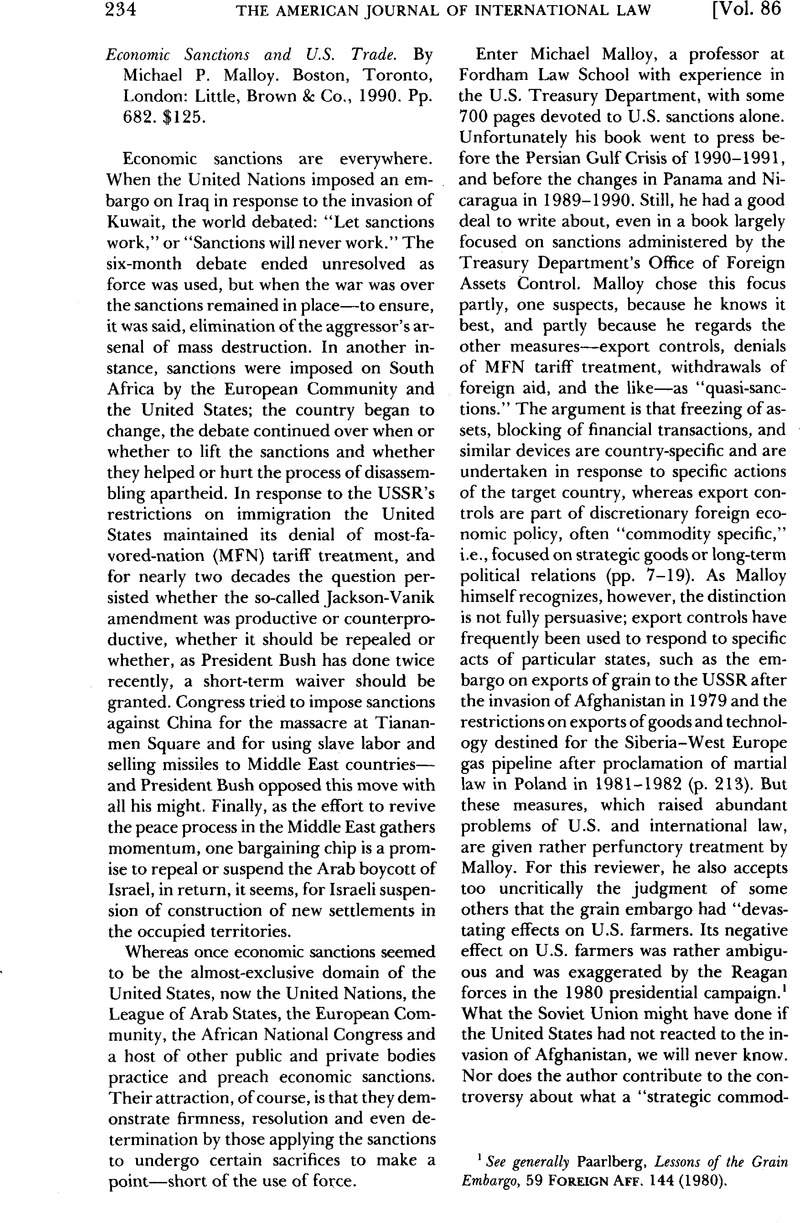No CrossRef data available.
Article contents
Economic Sanctions and U.S. Trade. By Michael P. Malloy. Boston, Toronto, London: Little, Brown & Co., 1990. Pp. 682. $125.
Published online by Cambridge University Press: 27 February 2017
Abstract

- Type
- Book Reviews and Notes
- Information
- Copyright
- Copyright © American Society of International Law 1992
References
1 See generally Paarlberg, Lessons of the Grain Embargo, 59 Foreign Aff. 144 (1980).
2 Some residual controls also remained in effect until a claims settlement between the United States and the People’s Republic was concluded in January 1980.
3 President Reagan’s antiapartheid program, proclaimed by Exec. Order No. 12,532, September 9, 1985, 50 Fed. Reg. 36,861 (Sept. 10, 1985), Exec. Order No. 12,535, October 1, 1985, 50 Fed. Reg. 41,682 (Oct. 15, 1985), was overtaken in 1986 by passage of the Comprehensive Anti-Apartheid Act, Pub. L. No. 99-440, 22 U.S.C. §§5501–5116.
4 See Hearings Before the Subcomm. on International Economic Policy and Trade of the House Comm. on International Relations on H.R. 1560 and H.R. 2382 and Markup of Trading with the Enemy Act Reform Legislation, 95th Cong., 1st Sess. (1977).
5 See Presidential Proclamation 4074 of Aug. 15, 1971, 36 Fed. Reg. 15,724 (Aug. 17, 1971). In fact, the U.S. Customs Court held the surcharge to be illegal three years later in Yoshida International, Inc. v. United States, 378 F.Supp. 1155 (Cust. Ct. 1974); on appeal, the Court of Customs and Patent Appeals reversed that decision, on the basis of the “broad and flexible” emergency powers granted to the President by §5(b) of the Trading with the Enemy Act, United States v. Yoshida International, Inc., 526 F.2d 560 (C.C.P.A. 1975).
6 See Restatement (Third) of the Foreign Relations Law of the United States §414 and sources there cited (1987).
7 For a start, compare Restatement (Third) of Foreign Relations Law §402; §403(3) and comment e; §414 and comments b, c, and f; and §431 and comments c, d and f (1987).
8 W. S. Churchill, The Second World War: Vol. I, The Gathering Storm 175 (1948).


